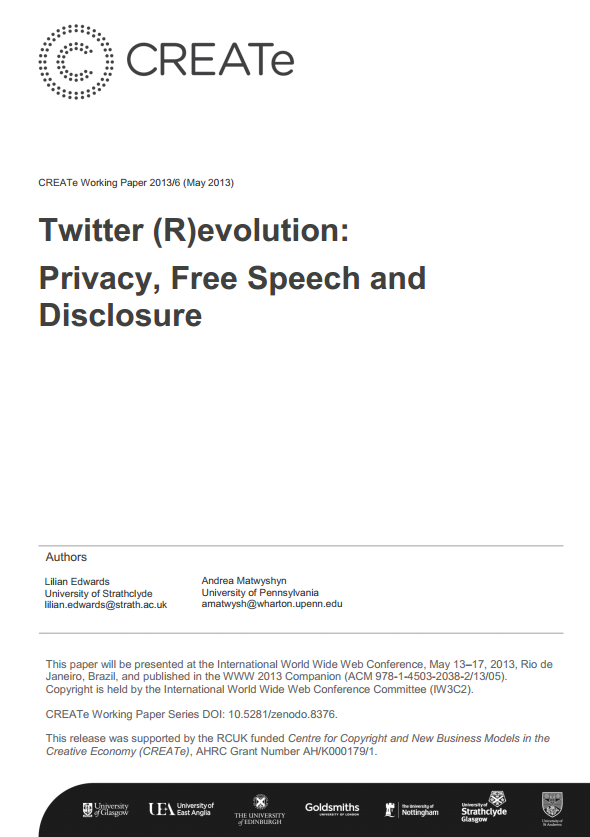Lilian Edwards and Andrea Matwyshyn (2013)
10 Pages
This paper will be presented at the International World Wide Web Conference, May 13–17, 2013, Rio de Janeiro, Brazil, and published in the WWW 2013 Companion (ACM 978-1-4503-2038-2/13/05). Copyright is held by the International World Wide Web Conference Committee (IW3C2).
Abstract
Using Twitter as a case study, this paper sets forth the legal tensions faced by social networks that seek to defend privacy interests of users. Recent EC and UN initiatives have begun to suggest an increased role for corporations as protectors of human rights. But, as yet, binding rather than voluntary obligations of this kind under international human rights law seem either non-existent or highly conflicted, and structural limitations to such a shift may currently exist under both US and UK law. Companies do not face decisions regarding disclosure in a vacuum, rather they face them constrained by existing obligations under (sometimes conflicting) legal demands. Yet, companies such as Twitter are well-positioned to be advocates for consumers’ interests in these legal debates. Using several recent corporate disclosure decisions regarding user identity as illustration, this paper places questions of privacy, free speech and disclosure in broader legal context. More scholarship is needed on the mechanics of how online intermediaries, especially social media, manage their position as crucial speech platforms in democratic as well as less democratic regimes.
Categories and Subject Descriptors
Security – pseudonymity, anonymity and untraceability; Human centered computing – social networks, privacy.
General Terms
Standardization, Security, Human Factors, Legal Aspects.
Keywords
Social networks, Twitter, pseudonymity, anonymity, privacy
Download Twitter (R)evolution: Privacy, Free Speech and Disclosure

